GMOSeralini.org welcomes the news of the republication of the chronic toxicity study on the glyphosate-based herbicide Roundup and a commercialized genetically modified (GM) maize, Monsanto’s NK603, led by Prof Gilles-Eric Séralini. The republication restores the study to the peer-reviewed literature so that it can be consulted and built upon by other scientists.
The study found severe liver and kidney damage and hormonal disturbances in rats fed the GM maize and low levels of Roundup that are below those permitted in drinking water in the EU. Toxic effects were found from the GM maize tested alone, as well as from Roundup tested alone and together with the maize. Additional unexpected findings were higher rates of large tumours and mortality in most treatment groups.
The study was first published in Food and Chemical Toxicology (FCT) in September 2012[1] but was retracted by the editor-in-chief in November 2013 after a sustained campaign of criticism and defamation by pro-GMO scientists.[2]
Now the study has been republished by Environmental Sciences Europe. The republished version contains extra material addressing criticisms of the original publication. The raw data underlying the study’s findings are also published – unlike the raw data for the industry studies that underlie regulatory approvals of Roundup, which are kept secret. However, the new paper presents the same results as before and the conclusions are unchanged.
The republished study is accompanied by a separate commentary by Prof Séralini’s team describing the lobbying efforts of GMO crop supporters to force the editor of FCT to retract the original publication.
GMOSeralini.org editor Claire Robinson commented: “This study has now successfully passed no less than three rounds of rigorous peer review.
“The first was for the initial publication of the study in Food and Chemical Toxicology. It passed with only minor revisions, according to the authors.[3]
“The second review took months. It involved a non-transparent examination of Prof Séralini’s raw data by a secret panel of unnamed persons organized by the editor-in-chief of FCT, A. Wallace Hayes, in response to criticisms of the study by pro-GMO scientists.[4,5]
“In a letter to Prof Séralini, Hayes admitted that the anonymous reviewers found nothing ‘incorrect’ about the results presented. However, Hayes pointed to what he said was the ‘inconclusive’ nature of some aspects of the paper, namely the tumour and mortality observations, to justify his decision to retract the study.[6]
“The rationale given for the retraction was widely criticized by scientists as an act of censorship and a bow to the interests of the GMO industry.[7,8] Some scientists pointed out that numerous published scientific papers contain inconclusive findings, including Monsanto’s own short (90-day) study on the same GM maize, and have not been retracted.[9] The retraction was even condemned by a former member of the editorial board of FCT.[10]
“Now the study has passed a third peer review arranged by the journal that is republishing the study, Environmental Sciences Europe.[11]
Comments from scientists
Dr Michael Antoniou, a molecular geneticist based in London, commented, “Few studies would survive such intensive scrutiny by fellow scientists. The republication of the study after three expert reviews is a testament to its rigour, as well as to the integrity of the researchers.
“If anyone still doubts the quality of this study, they should simply read the republished paper. The science speaks for itself.
“If even then they refuse to accept the results, they should launch their own research study on these two toxic products that have now been in the human food and animal feed chain for many years.”
Dr Jack A Heinemann, Professor of Molecular Biology and Genetics, University of Canterbury New Zealand, called the republication “an important demonstration of the resilience of the scientific community”. Dr Heinemann continued, “The first publication of these results revealed some of the viciousness that can be unleashed on researchers presenting uncomfortable findings. I applaud Environmental Sciences Europe for submitting the work to yet another round of rigorous blind peer review and then bravely standing by the process and the recommendations of its reviewers, especially after witnessing the events surrounding the first publication.
“This study has arguably prevailed through the most comprehensive and independent review process to which any scientific study on GMOs has ever been subjected.
“The work provides important new knowledge that must be taken into account by the community that evaluates and reports upon the risks of genetically modified organisms, indeed upon all sources of pesticide in our food and feed chains. In time these findings must be verified by repetition or challenged by superior experimentation. In my view, nothing constructive for risk assessment or promotion of GM biotechnology has been achieved by attempting to expunge these data from the public record.”
Notes
1. Seralini GE et al, 2012. RETRACTED: Long term toxicity of a Roundup herbicide and a Roundup-tolerant genetically modified maize. Food Chem Toxicol 50:4221–4231.
2. http://www.spinwatch.org/index.php/issues/science/item/164-smelling-a-corporate-rat
4. www.endsciencecensorship.org/en/page/statement#.U6XBuagoyBA ; Hayes AW (2013). Letter to Professor GE Séralini. 19 Nov. Available at: http://www.gmwatch.org/files/Letter_AWHayes_GES.pdf
5. http://www.spinwatch.org/index.php/issues/science/item/164-smelling-a-corporate-rat
6. Hayes AW (2013). Letter to Professor GE Séralini. 19 Nov. Available at: http://www.gmwatch.org/files/Letter_AWHayes_GES.pdf
7. http://www.utsandiego.com/news/2014/jan/08/science-food-health/ ; Also see article beginning: http://www.endsciencecensorship.org/en/page/Statement#.U6YDUKgoyBA
9. http://www.endsciencecensorship.org/en/page/retraction-intro#.U6gKv6gowsk ; http://www.endsciencecensorship.org/en/page/retraction-double-standards#.U6gLPKgowsk
10. http://www.sciencedirect.com/science/article/pii/S0278691514000039
11. http://www.enveurope.com/content/26/1/14 http://www.enveurope.com/content/26/1/13









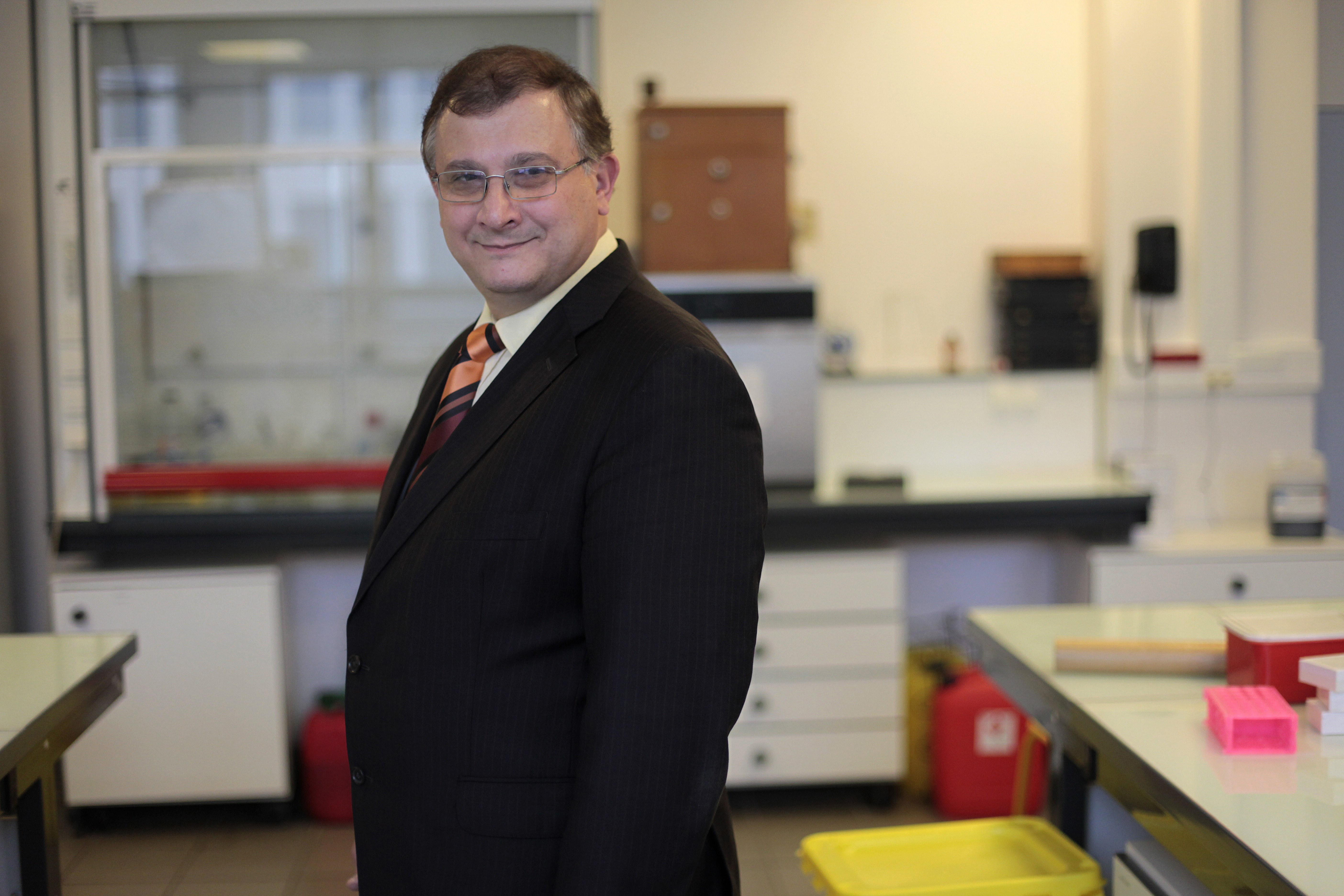
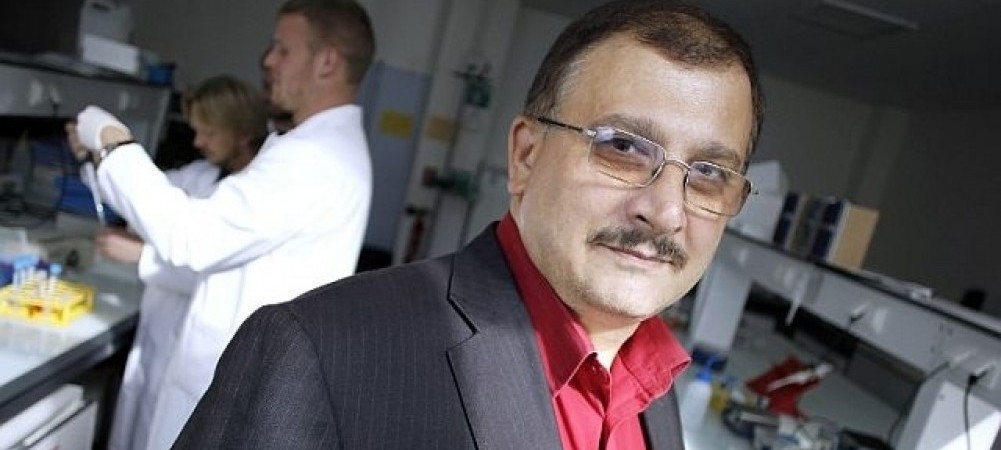

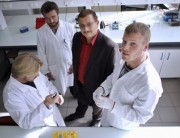
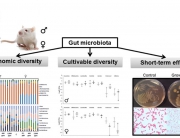






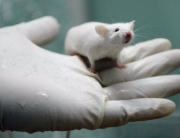




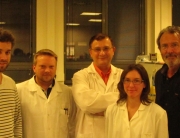


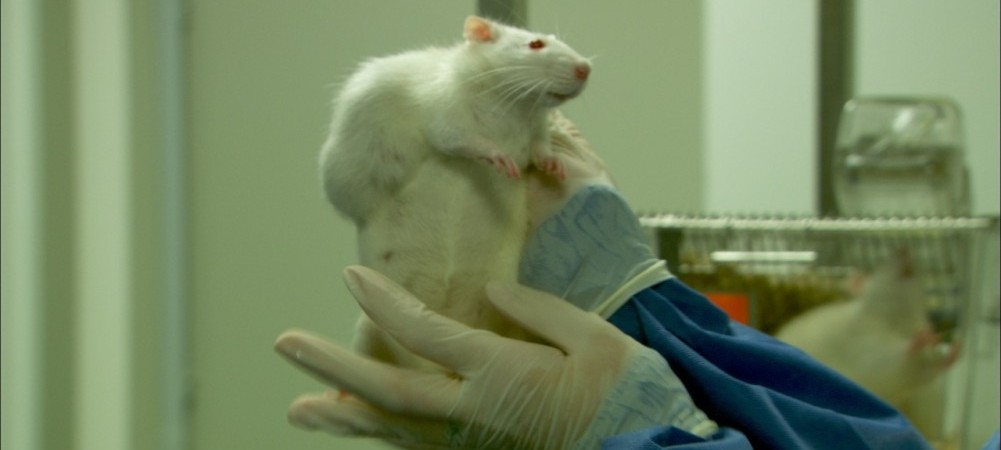

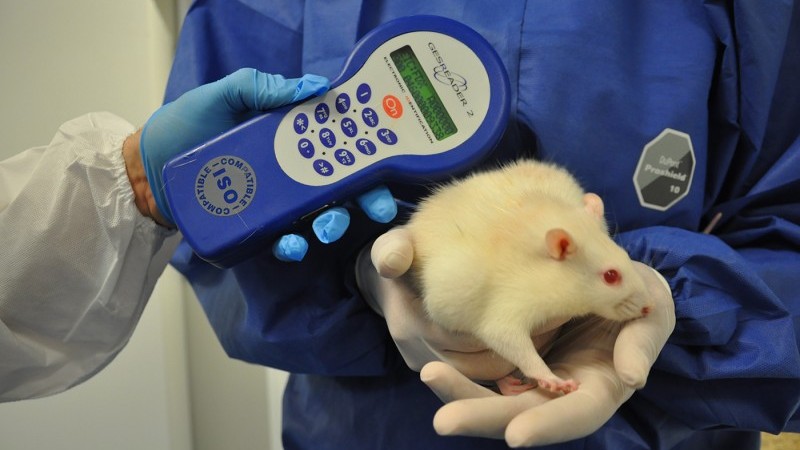

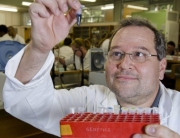
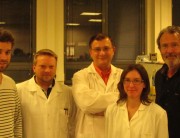

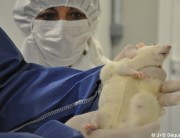






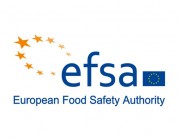
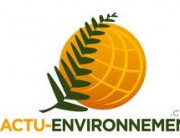
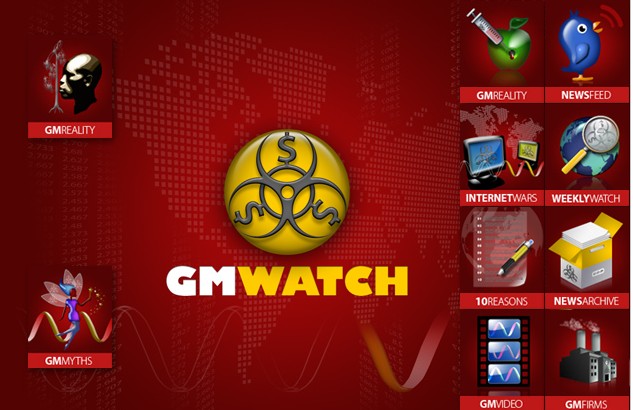
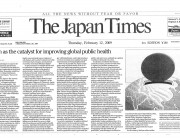

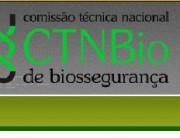


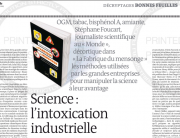



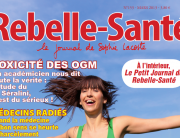


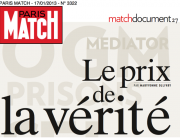
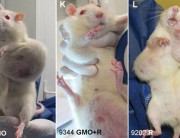


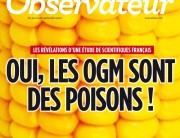


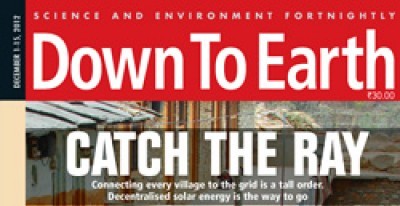












Amazing work. You guys deserve the respect, support and adoration of the world for standing up to the tyranny of the GMO lobby.
Here in South Africa http://www.acbio.org.za/ is working hard just to get labelling on GMO products. Already Maize is pretty much all GM and given this recently republished report all GMO’s should be banned worldwide until they are proven safe. It appears that many populations of the world are being used as Lab rats.
Genocide is defined as “the deliberate killing of a large group of people, especially those of a particular group or nation.” Physicist, Dr. Vandana Shiva, PhD., “said that the large number of farmer suicides in India is essentially a genocide spearheaded by large food corporations such as Monsanto. Although these corporations are not actively trying to kill off local farmers, their actions and means of business force farmers to their deaths (Hu n.d.).
“Farmers in India experienced anomalously high suicide rates following adoption of Western agricultural methods based on extensive use of Roundup (R) [208]. While an explanation based on economic stress has been proposed, suicide victims in general have low serotonin levels in the brain [209], so it is conceivable that serotonin suppression via depletion of tryptophan by glyphosate played a role in the suicides among farmers in India (Samsel, et al., 2013)
1. Let us please analyze a method of measuring a globally EEG coherent brain and its correlates to higher intelligence scores, higher ethical and moral reasoning scores for the purpose of finding solutions to problems in genetic engineering.
2. Then we will for the sake of understanding, compare the typical coherent brain of a pharmaceutical scientist who compassionately, kindly, ethically, and intelligently explains the benefits of a pharmaceutical which helps cure an illness, but which also has side effects; to the hypothetical incoherent brain of biotech scientist who is lying and claiming Bt-toxins, glyphosate, adjuvant POE-15, 2,4-D, neonticonoids, and all genetically engineered and associated herbicide and insecticide components “are absolutely safe because there is no adequate published peer reviewed research indicating side effects;” and who is consuming these bio-toxins himself. What will be the objectively measured difference in coherence scores between these two brains?
3. Then we will analyze the effect of narcotics, alcoholism, and hypothetical overdoses of glyphosate, POE-15, neonticonoids, 2,4-D, etc. flowing through the autistic child’s brain compared to a normal healthy child eating organic and non-genetically modified foods. We will propose using neuroimaging to detect functional lesions-areas where the brain may be damaged by toxins, and no longer receives blood flow (NIHM 2014). Such a brain would also demonstrate lower global EEG coherence scores.
4. We will conclude that it is ethically imperative for the US government to implement a time wise plan to remove bio-tech toxins from the US school lunch programs, and from the US food supply because there is enough research indicating they are unsafe.
1. Physicist, Dr. Lawrence Domash (Domash 1975) used the astronomy coherence function
[ɣ ]^2 = [sin θ]^2 + [cos θ]^2
to calculate phase coherence between two signals X and Y of the same frequency, from two positions on the scalp, “where θ is the phase angle between the frequency f components of two channels X and Y.”
Practically, only coherence in excess of .95 (approaching unity) is displayed in COSPAR diagrams, showing coherence peaks in the same frequency over time intervals, in the brain’s EEG (Domash 1975). Such a high coherence score between ear, X, to ear, Y, or from any other 16 X and Y relationships from 32 scalp leads, is known to be correlated to higher intelligence scores, higher ethical and moral reasoning scores, as well improved athletic performance (Reddy, 1974; Miskiman, 1977; Int J Neuroscience, 13, 1981; Int J Neuroscience, 15, 1981; Haynes, 1976, Travis 2009).
We will be using a physics coherence function to discriminate both phase constancy and intensity stability, hidden in a variability of EEG signals.
“The mathematical significance of the coherence function is clarified by noting that if X and Y are pure sinusoids, then it can be shown to be equivalent to
[ɣ ]^2 = [cos θ xy,k]^2 + [sin θ xy,k]^2 (14)
where θ xy, k is the phase angle between the kth frequency components of channels X and Y…Evidently, if this phase relationship is constant over the time employed in the smoothing [averaging], [ɣ ]^2 > 1 and the deviation of the coherence from unity may then be viewed in this example as a measure of the non-constancy of the phase relationship between the two signals (Levine, P., et al.1975).”
Consider two channels of EEG data, X(t) and Y(t), which are simultaneously sampled at a sampling frequency f Hz. Define the sets {X}toN and {Y}toN, consisting of N successive samples starting with time to and denote the jth element of each set by Xj and Yj, respectively:
{X}toN = {Xo, X1, …, XN-1}: Xj = X(to + j/f)
{Y}toN = {Yo, Y1, …, YN-1}; Yj = Y(to + j/f) (1)
By Fourier analysis series one obtains an expansion of the form
N/2
Xj = ∑ [Ax,k cos (2 πjk/N) + Bx,k sin (2 πjk/N) (2)
k=0
with a similar expression for Yj in terms of the cosine and sine amplitudes Ay,k and By,k
(Levine, P., et al.1975)”.
In the more general case of nonsinusoidal signals, i.e., the EEG, deviations of the coherence from unity can arise also because of intensity [i.e. √(A^2 + B^2)] fluctuations in either or both channels from one data subject to another, even if the phase relationship is constant. Thus strictly speaking, a coherence value close to unity implies both phase constancy and intensity stability in the EEG activity at the two derivations for the frequency of interest. Since in practice it appears that phase variability is the primary impediment to achieving near unity coherence required for registration in the cospar, this aspect – rather than intensity stability – has been emphasized. (Levine, P., et al.1975)”
“As an application of equation 14, we may compute the coherence of two pure sinusoids that differ in frequency by f Hz. If the time over which the coherence is defined is T seconds, then since the relative phase of the two signals increases linearly with time according to phase = 2πft, we find
T T
coherence = (1/T ∫ cos (2πft) dt)^2 + (1/T ∫sin (2πft) dt)^2
0 0
= 2 / (2πf T)^2 (1- cos (2πf T))
(Levine et al., 1975)
2. A pharmaceutical scientist who is intelligent, compassionate, ethical, and not lying will by implication probably have a very high coherence score. All his pathways or lines of thinking are logically correlated so to speak.
However, a competent scientist who is promoting an intelligent proposal such as using the blueprint of plants to create intelligent and useful solutions for mankind, and like the pharmaceutical scientist is consuming his copyright products, but at the same time, unlike the pharmaceutical scientist, is unethically claiming [lying] that there are no peer reviewed published dangerous side effects from his products will hypothetically show a diminished global coherence score. One part of his brain is saying something intelligent, while another area of his brain is thinking in a contradictory logic and generating spoken lies and incoherent behavior (eating insecticides and herbicides). This represents uncorrelated pathways or lines of logic, and pathways lacking logic in the thinking process, which should show up as a measured diminished global EEG coherence score.
Likewise, a corporate medical doctor/researcher who is selling Roundup to Indian Bt-cotton farmers, professionally knowing ahead of time the estimated statistical probabilities of how many Bt-cotton farmers will likely go bankrupt, and how many will probably commit suicide by drinking Roundup, based on past marketing trends of Monsanto, is violating his Hippocratic Oath. How? By selling his product to a client, knowing very precisely the estimated statistical outcomes which will result in suicide by the client swallowing the product, he is violating his Hippocratic Oath. Markov marketing matrices used in corporate marketing plans, can estimate the predicted rates of suicides based on past data.
Genocide is defined as “the deliberate killing of a large group of people, especially those of a particular group or nation.” Physicist, Dr. Vandana Shiva, PhD., “said that the large number of farmer suicides in India is essentially a genocide spearheaded by large food corporations such as Monsanto. Although these corporations are not actively trying to kill off local farmers, their actions and means of business force farmers to their deaths (Hu n.d.).
Thus we hypothesize the Monsanto medical doctor who is knowingly violating his Hippocratic oath, will also show a diminished global EEG coherence score, by demonstrating unethical actions which cannot escape the measurement by global EEG coherence score testing of the source of incoherent behavior, the disorderly brain.
[Basically this could be a very full proof system, combined with lie detector tests, galvanic skin tests, etc., to find out who is lying in US courts. Many watch every day, popular televised US Court shows, showing people lying in US courts while US judges have to try and discern who is telling the truth.]
3. How do scientists examine damage to the brain from excessive use of narcotics, alcoholism, or any kind of poisoning, as in the hypothetical case of children who have too many bio-tech toxins in their brains from their school lunch program and the average American diet? Alcoholism and excessive use of narcotics is known to create functional lesions in the brain, which are areas with no more blood flow, and hence non-functional areas of the brain.Can these “functional holes” be created by consuming too much of the Roundup adjuvant POE-15 for example?
“In studies of patients with focal brain lesions, it is often useful to coregister an image of the patient’s brain to that of another subject or a standard template. We refer to this process as spatial normalization. Spatial normalization can improve the presentation and analysis of lesion location in neuropsychological studies; it can also allow other data, for example from functional imaging, to be compared to data from other patients or normal controls. In functional imaging, the standard procedure for spatial normalization is to use an automated algorithm, which minimizes a measure of difference between image and template, based on image intensity values. These algorithms usually optimize both linear (translations, rotations, zooms, and shears) and nonlinear transforms. In the presence of a focal lesion, automated algorithms attempt to reduce image mismatch between template and image at the site of the lesion. This can lead to significant inappropriate image distortion, especially when nonlinear transforms are used. One solution is to use cost-function masking-masking the areas used in the calculation of image difference-to exclude the area of the lesion, so that the lesion does not bias the transformations. We introduce and evaluate this technique using normalizations of a selection of brains with focal lesions and normal brains with simulated lesions. Our results suggest that cost-function masking is superior to the standard approach to this problem, which is affine-only normalization; we propose that cost-function masking should be used routinely for normalizations of brains with focal lesions (Brett, et al., 2001).
4. We can conclude. Genetic engineering like the pharmaceutical industry is an intelligent and altruistic endeavor to find solutions for disease, agricultural solutions, and other areas of suffering in mankind. However it is clear people are suffering from genetic engineering such as many of Monsanto’s clients, the children of Bt-cotton fathers who have committed suicide. We will see how glyphosate may be causally implicated by serotonin suppression via depletion of tryptophan by glyphosate. It is clear biotech scientists are lying and saying there are no peer reviewed studies showing negative outcomes from their bio-tech toxins. It is clear for research purposes to help discriminate herbicide and insecticide damage to the brain to help these people, that global EEG coherence tests should be made on people eating insecticides and herbicides and those who advocate that eating insecticides and herbicides should be done, with no adequate safety testing, and with no labeling of their corporate toxins.
A study from the journal Entropy, published in 2013, “Defects in the serotonin transporter gene, 5-HTT, have been associated with antisocial personality disorder and violent behavior [205]. There has been a marked increase in the rate of irrational school associated violent deaths in the United States since 1990 [206]. and glyphosate may play a role in this pattern through depletion of serotonin bioavailability. Disturbances in serotonin function in the brain are known factors in impulsive aggression, violence, and criminal behavior [207]. Farmers in India experienced anomalously high suicide rates following adoption of Western agricultural methods based on extensive use of Roundup (R) [208]. While an explanation based on economic stress has been proposed, suicide victims in general have low serotonin levels in the brain [209], so it is conceivable that serotonin suppression via depletion of tryptophan by glyphosate played a role in the suicides among farmers in India (Samsel, et al., 2013).”
It is virtually certain that the immortal hero, Robin Williams by virtue of the fact that he lived in America, consumed unlabeled glyphosate and other bio-tech toxins in his diet. This may have contributed to his decreased serotonin availability.
Now those of us who live in the American Midwest wake up to the impending the plan that the USDA is organizing: the aerial spraying of 2,4-D, a defoliant molecule taken from Agent Orange, over 2,4-D engineered resistant soy and corn. “Good morning Viet Nam!”
An international court which has jurisdiction over the US Supreme Court, should review every case of an Indian Bt-cotton farmer’s suicide, and award endowments to the bereaved children. Perhaps settlements like $2,000,000.00 per child paid by Monsanto to cover costs of the children’s education through graduate school, would be sufficient punishment for the multi-national Monsanto corporation. These types of settlements can also be awarded by the same international court to any US Midwest farming children who are damaged or killed by aerial sprayed 2, 4-D, paid by Dow Agra.
References:
Brett M1, Leff AP, Rorden C, Ashburner J.Neuroimage. (2001),
Spatial normalization of brain images with focal lesions using cost function masking. Aug;14(2):486-500.
Domash, L., (1976) The Transcendental Meditation Technique and Quantum Physics: Is Pure Consciousness a Macrosopic Quantum State in the Brain, Scientific Research on the Transcendental Meditation Program Collected Papers, Volume I, West Germany: MERU Press: Pp. 683-703.
Haynes, T. H., Hebert, J. R. (1976) The Psychophysiology of Advanced Participants in the Transcendental Meditation Program: Correlations of EEG Coherence, Creativity, H-Reflex, and Experience of Transcendental Consciousness, MERU, Weggis, Switzerland, Scientific Research on the Transcendental Meditation Program Collected Papers, Volume I, West Germany: MERU Press: Pp. 208-212.
Hu, Sheila (n.d.) Vandana Shiva’s Lecture: An Insight into the Food Industry, Food Blogger, Main M Circle, Vassar Life and Culture by the Miscellany News http://maincircle.miscellanynews.org/tag/vandana-shiva/
http://bicep.rc.fas.harvard.edu/
International Journal of Neuroscience 13 (1981): 211-217.
International Journal of Neuroscience 15 (1981): 151-157.
Levine, P. H., Herbert, J. R., Haynes, C. T., Strobel, U. (1975) EEG Coherence During the Transcendental Meditation Technique, Psychophysiology Laboratory, Centre for the Study of Higher States of Consciousness, Maharishi European Research University, Weggis, Switzerland, Scientific Research on the Transcendental Meditation Program Collected Papers, Volume I, West Germany: MERU Press: Pp. 187- 207.
Miskiman, D. (1977) The Effect of The Transcendental Mediation Program on the Organization of Thinking and Recall (Secondary Organization). Scientific Research on the Transcendental Meditation Programme: Collected Papers, Volume 1, Pp 385–392.
NIHM (2014) Neuroimaging and Mental Illness: A Window Into the Brain,
National Institute of Mental Health, Bethesda, MD 20892-9663
http://www.nimh.nih.gov/health/publications/neuroimaging-and-mental-illness-a-window-into-the-brain/index.shtml
Reddy, M. K., et al, (1974) The Effects of the Transcendental Mediation Program on Athletic Performance, Niloufer Hospital, Hydrabad, Andhra Pradesh, India.
Travis, F., (2009) Brain Functioning as the Ground for Spiritual Experiences and Ethical Behavior FBI Law Enforcement Bulletin, 78(5), Pp. 26-32.
Here’s a paper that you guys might find relevant as providing a theoretical basis for anti-GMO arguments: http://www.mdpi.com/1099-4300/15/11/4748
Agree with Andy….you guys are heroes for sticking with this study in the face of such nasty, malicious slander, lies, intimidation, smear tactics and dirty pool played by the GMO lobby. You have my respect and sincere thanks for your efforts, determination and honesty. Truth will win out eventually, God willing. Keep it up!
I’m so glad your work is getting published. It disgusts me that corporations have bought out so many scientists that attack research that exposes the dangers of GMOs. The revolving door between corporations, government, and academia must be closed to eliminate this bias.
I am fortunate to live on Maui where the voters passed a ballot measure to put a moratorium on GMO research until it is proven safe. It is now tied up in the courts, but the people here are trying to stop the GMO seed production and research and the spraying of a cocktail of some 80 different pesticides. On Kauai the rates of certain illnesses are ten times the national average and children in schools near the fields often go home very sick when spraying occurs. Sadly, the head of the hospital in West Kauai is a former biotech executive so don’t count on hearing much about what is really going on healthwise.
What saddens me are all the scientists that were destroyed and forgotten who did exactly what Séralini did but did not prevail. Someone should do an article about all of them and where they are now